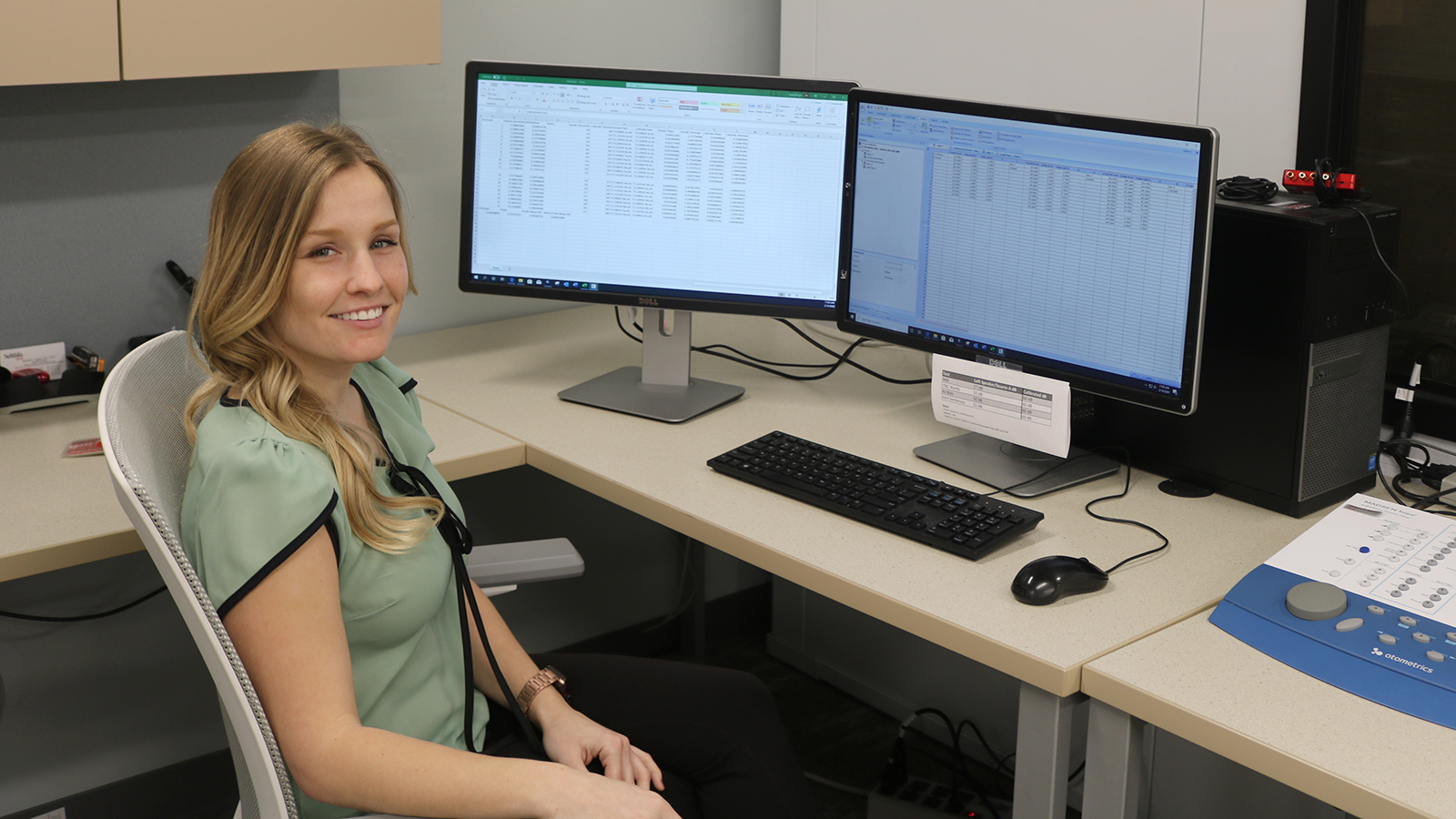
Elysa Binger receives CI2020 student scholarship from American Cochlear Implant Alliance
03 Mar 2020 By Kelcey Buck
Elysa Binger, a second-year student in the University of Nebraska-Lincoln’s Clinical Doctorate in Audiology (Au.D.) program, was one of 19 students from around the world selected for a scholarship to attend CI2020 International: 16th International Conference on Cochlear Implants and Other Implantable Technologies, as announced by the American Cochlear Implant Alliance.
“I was shocked,” Binger said of finding out she’d been selected for a scholarship. “Most of these scholarships are awarded to students presenting research or capstone projects, and I’m not doing that because I’m still collecting data. So, receiving the scholarship based on my essay regarding my area of interests involving cochlear implants was very exciting.”
A native of Huron, South Dakota, Binger decided to pursue audiology while completing her undergraduate studies at the University of South Dakota. She was especially intrigued by cochlear implants and their ability to give individuals with profound hearing loss the ability to hear.
In applying for the CI2020 scholarship, Binger wrote about her experience as a research assistant in the Cochlear Implant Research Lab led by associate professor Michelle Hughes. One of the lab’s current research projects focuses on the use of telepractice to provide cochlear implant services to individuals from rural areas. It is easy for Binger to see the real-world application of this research.
“I’m from a small town in South Dakota and the closest audiology clinic is two hours away. Right now, there’s only one place in the state that does cochlear implants so people are having to drive five or six hours for services. I wrote a lot about that – what a hassle it is, especially if you’re older, having to travel to get to 10 to 12 appointments a year.”
Binger also included cochlear implant users’ perceptions of music in her essay. She noted that one of the biggest complaints cochlear implant users have is they love music but it isn’t the same with the implant and they are unable to appreciate it in the same way.
She is eager for the opportunity to attend CI2020, which will be held March 18-21 in Orlando, and looking forward to enhancing what she has already learned about cochlear implants.
“I hope to gain more knowledge on programming strategies with cochlear implants and apply it in the clinic with our patients,” Binger said. “I’m also excited to learn more about current research for improving music perception and single-sided deafness outcomes for cochlear implants.”
Special Education and Communication Disorders